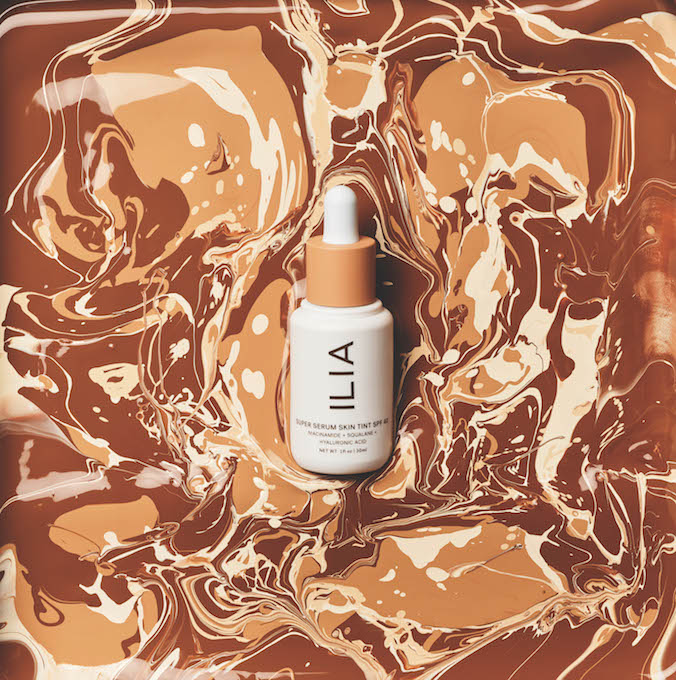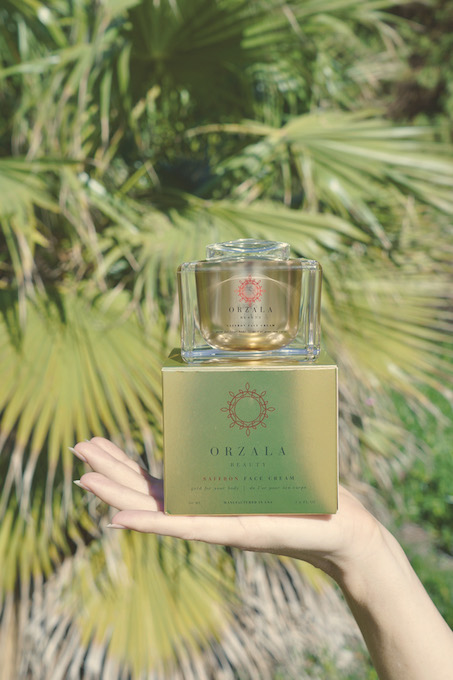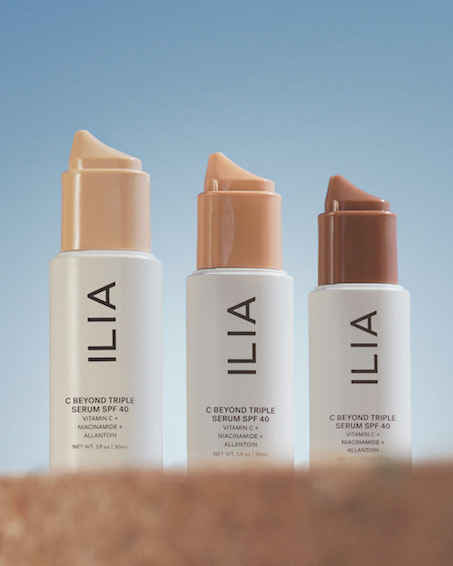
Some dermatologists and beauty experts have turned to greener grooming when it comes to primping products to put our best face forward.
By Ashley Breeding
After symmetry, radiant skin is one of the highest criteria for facial beauty, according to the National Institutes of Health. It makes sense that humans are wired to look for these traits—indicators of good health—when choosing a mate with whom to procreate. But in a modern world full of stressors and pollutants, it’s become more challenging to achieve optimal health and the glow to prove it.
And some of the chemical-filled products used to enhance our look could be causing more harm than good, so it’s important to know how to read the labels and understand the pros and cons of ingredients in these items.
There’s no question about it: What you put on your skin—the body’s largest organ—will absorb into your bloodstream, asserts Dr. Nathaniel DeNicola, chief medical officer for Caduceus Medical Group, which has a Laguna Beach office. Parabens—chemical preservatives in everything from shampoo to shaving cream—are among ingredients getting a lot of scrutiny. “Studies have found parabens in urine within just a few hours [of application],” DeNicola says.
What’s harder to measure is exactly what health risks are created by these types of chemicals in products, DeNicola explains. Currently in the U.S., safety standards are regulated under the Food and Drug Administration’s Food, Drug and Cosmetic Act of 1938. But when you consider how many more synthetic chemicals have been added to products since that time, doing your own research is your best defense. Fortunately, many beauty companies, including those in Laguna, not only help you screen out the potentially bad ones—but curate the most natural ones.
Beyond Skin Deep
The Environmental Working Group, a U.S. nonprofit specializing in research and advocacy in the areas of agricultural and drinking water pollution, toxic chemicals in products and more, has highlighted studies showing that parabens mimic estrogen and may lead to different types of cancers.

In 2012, the Journal of Applied Toxicology reported a study in which researchers examined breast tissue from 40 breast cancer patients to look at the concentration of parabens in each. The study, led by researchers at the University of Reading and University Hospital of South Manchester, detected one or more parabens in 99% of tissue samples, and higher amounts found near tissue from the armpit area versus other parts of the breast. However, seven of the women sampled reported never having used deodorant. While researchers could not say definitively that parabens caused the tumors, they felt further study was warranted.
While DeNicola points out that no study has conclusively found a dose response between these “hormone-disrupting” chemicals and cancer, he says it’s best to steer clear of parabens, which have antibacterial functions; phthalates, used as softeners and to bind to fragrances; sulfates, detergents that can irritate skin; and formaldehyde, a preservative and human carcinogenic.
And, when choosing products, “opt for ‘fragrance-free’ over ‘unscented,’ which is actually multiple scents combined to cancel others out,” DeNicola adds.
It’s Only Natural
When choosing products, it’s best to ignore greenwashed marketing and focus on the ingredient list. You’ll find that many reveal a host of chemicals that are potentially harmful, according to the Environmental Working Group. They’re even in toothpaste, body wash, face cream, antiperspirant, nail polish, hair dye—you name it. According to the EWG, of the more than 1,600 ingredients limited or banned from personal care products in Europe and other countries, only nine are banned in the U.S.—let that sink in.
At Roots the Beauty Underground, founder Laura Linsenmayer, who spent over 20 years in the beauty industry before opening her own boutique and salon, avoids anything with toxins. Shop an extensive list of brands for practically any beauty need (even perfume and teeth whitening), including Laguna’s own Ilia Beauty. Some are even packaged in refillable, or 100% recycled or recyclable materials.
“In the man-made world, full of toxins and forever chemicals, it was important to me that we are able to enjoy high-performance makeup, hair color and skin care products that are not laced with hormone disrupters and cancer-causing chemicals,” Linsenmayer says. “At Roots the Beauty Underground, we are focused on having a good time and feeling beautiful without fear.”
At Ilia, founder Sasha Plavsic looks at how ingredients are sourced versus using solely organic. “We learned early on that not every natural ingredient is good for the skin, nor is every synthetic bad,” says the Vancouver native, whose interest in health and wellness stemmed from her brother’s early-childhood allergies and acute asthma, and how her mother healed him with homeopathic remedies. “Clean beauty is where those two collide—with conscious, carefully-selected ingredients—and no compromises.”

But you won’t find anything with gluten, parabens, phthalates, petroleum, mineral oil, talc, BHA/BHT, propylene glycol, PEG, cyclomethicones or chemical screens, she asserts. “We are also cruelty-free and certified by Leaping Bunny.”
Always building awareness about what’s happening down the line in her industry, Pavlic says she learns about where Ilia ingredients come from and how they’re made. “You can’t see everything,” she points out, “but we try to really watch out for those things to make sure there is a consciousness and we source all of our ingredients responsibly.”
Her brand is built on the philosophy that business practices should use transparency as a guide to challenge the conventions of clean beauty to create something radically new, yet safe: potent formulas that make skin look and feel alive. (Its motto: “We believe in skin that looks like skin—and radiance that comes naturally.”) Products like the Super Serum Skin Tint SPF 40 and Multi Stick are designed to allow and enhance radiance that comes naturally, and have become popular worldwide after going viral on TikTok. In the last year, the company has released new products like a lip-reviving balm, matte eye tint and C Beyond Triple Serum, a stabilized 10% Vitamin C serum with SPF 40 mineral sunscreen. And just last month: the Bright Start eye cream.
In 2021, Laguna-based brand Orzala Beauty released its first product: Saffron Face Cream. “As a child, I would watch my mother and grandmother use saffron to care for their skin,” says the company’s founder, Edris Naseri, who describes watching them grind the spice into a paste that would leave their faces looking “radiant.” In his native Afghanistan, saffron has been used for millenniums for its anti-aging properties, so Naseri was surprised to find it was “relatively unknown in western beauty products,” he says.
Long inspired to “by natural ingredients to promote health,” he and girlfriend Rowan Foley, a Laguna painter and sculptor, dreamed of creating a line that combines ancient beauty rituals of the Middle East with modern science. Translating to “light created by fire,” Naseri says the name represents the color and luxuriousness of the high-quality saffron, which is sourced from his family farm in Afghanistan. Equally committed to sustainability as it is natural, organic ingredients, Naseri says the process requires little water and creates jobs for women in areas where opportunity is limited by Taliban rule. Additionally, the company’s lab focuses on energy efficiency and reducing waste and pollution.
Laying the Foundation
While it’s important to be savvy about the ingredients in cosmetic products, the first step to good health and glowing skin is to eat a nutritious diet that emulates, as much as possible, that of our hunter-gatherer ancestors. The next is to limit sun exposure, which can cause dryness, wrinkles, age spots and—in worst-case scenarios—skin cancer. Nonmelanoma skin cancers are the most diagnosed of all cancers, affecting nearly 3.3 million people in the United States each year, according to the American Cancer Society. That makes it more common than lung, brain and breast cancers combined.
DeNicola recommends limiting time in the sun and wearing protective clothing, such as long sleeves and a wide-brimmed hat, even while surfing or driving in the car. Wear sunblock that protects against both UVA and UVB rays (which work synergistically to cause skin cancers) and is “no less than SPF 30 and reapplied every two hours,” DeNicola advises. “Contrary to popular belief, the SPF [factor] does not equate to the length of time it will protect you, so reapplication is more important than the SPF itself.”

And it isn’t not just for sunny days or hours in the surf, points out DeNicola, whose practice offers patients free annual skin screenings, which can be lifesaving. “Our exposure in Southern California is different than exposure in other parts of the country. …We find a lot of cases of early skin damage.”
A word to the environmentally conscious: Chemical sunblocks containing oxybenzone and octinoxate have been banned in such areas as Hawaii and the U.S. Virgin Islands because they’re harmful to coral reefs. According to The Ocean Foundation, a nonprofit that supports the efforts of environmentalists and ocean conservationists globally, even a small amount of the chemicals in some sunscreens bleaches corals, depleting them of their algae energy source and causing them to become susceptible to viral infections. It estimates that a single drop of oxybenzone in more than 4 million gallons of water is enough to endanger marine organisms.
To protect your health and the environment from any potential risk, DeNicola recommends his patients apply a physical blocker (also called mineral sunscreen) that contains titanium dioxide or zinc, since these shield skin without getting absorbed. Physical blockers are especially preferred to chemical blockers for young children and pregnant women. And with newer formulas that blend nicely into skin, you don’t need to worry about masking your tan under a heavy white residue that older versions left behind.




